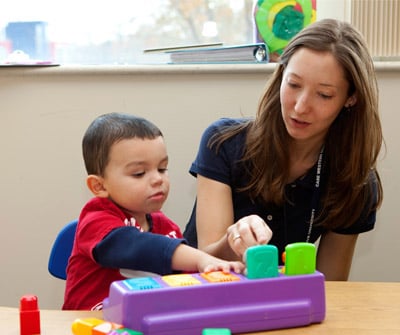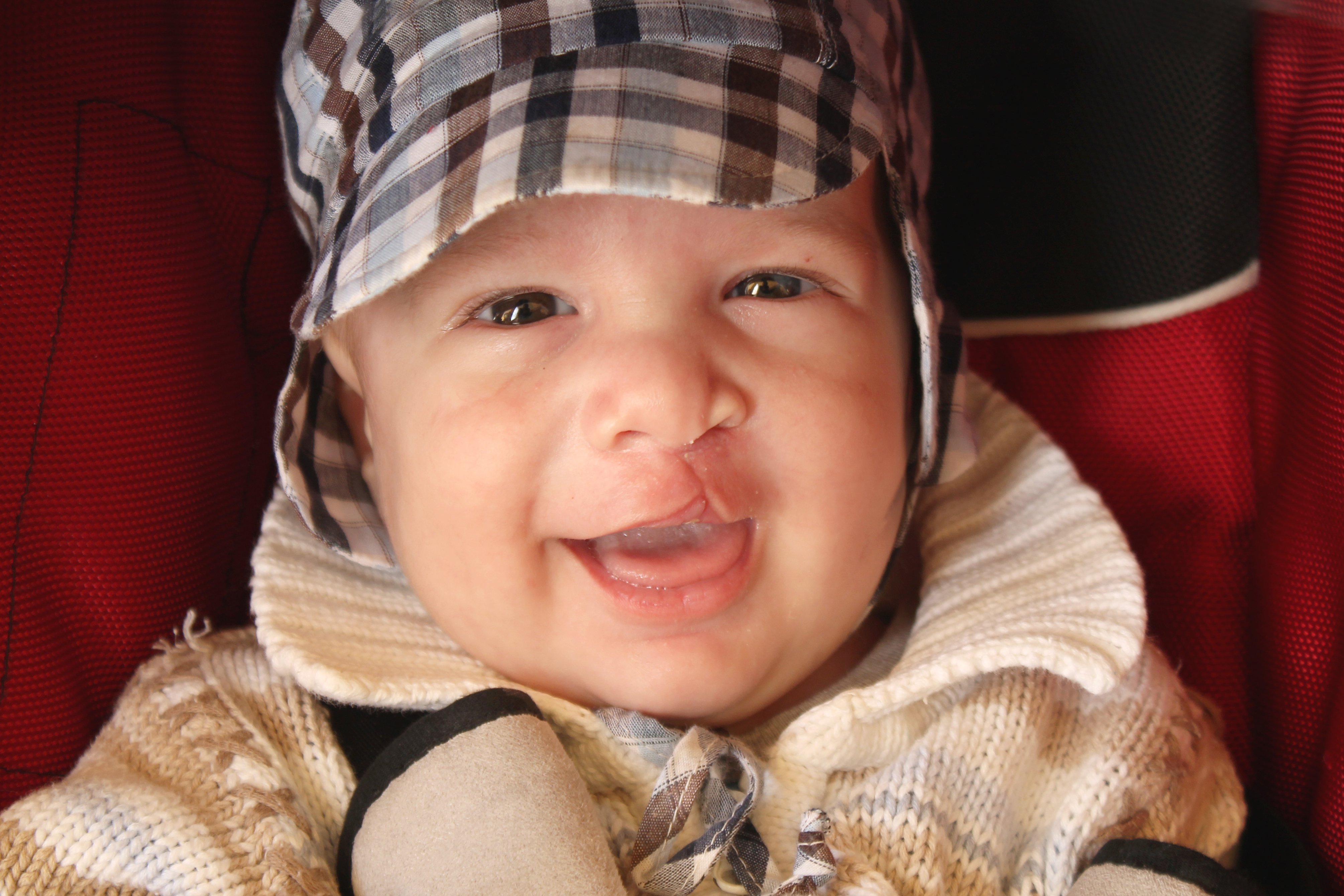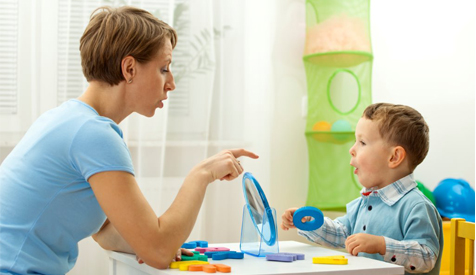Imagine: A child comes home from cheering for their favorite team at a high school game, and their voice sounds raspy. The next day when they wake up, their voice is gone completely and they can barely speak at all. Sound familiar? Maybe a similar occurrence has happened to you, except it was when you woke up with a bad head cold. This is something we commonly hear people refer to as “losing my voice.” What people think of as “losing their voice” can range from a hoarse, raspy voice to no voice at all. Have you ever wondered what exactly happens to our body to cause this to happen?
I'm Losing My Voice - What Does That Mean?
Tags: Speech, Language, Communication, Voice, talking
More Talking Please! 7 Fun Activities to Promote Speech & Language in the Young Child
Everyday activities can be opportunities to expand learning – particularly for speech and language. Here are seven easy, familiar options you can do at home with your child that offer speech and language cues. Encourage the child to repeat words or anticipate the next word or sentence. For example, after we put on our socks, what comes next? Shoes.
Tags: Speech, Language, Communication, Learning, toddler, talking
What is Selective Mutism and How is it Treated?
Selective mutism is a complex childhood anxiety disorder characterized by a child’s lack of verbal communication in select social environments, such as school. Children with selective mutism possess the ability to speak, but are selective of the settings in which they choose to speak. They will often speak in environments where they feel safe, relaxed, and calm with familiar people such as parents or siblings, but will choose not to speak in environments where they are less comfortable. A common misconception is that selective mutism is a form of autism. Children with selective mutism may demonstrate lack of appropriate social language use that mimics those on the autism spectrum, but selective mutism is not indicative of autism.
Tags: Speech, Language, Communication, Stuttering, Learning, Voice, talking
What is the Difference Between Cleft Lip and Cleft Palate?
A cleft is any opening in a normally closed structure. A cleft lip is an opening in the lip, typically the upper lip. These clefts are more commonly unilateral (on one side of the lip) as compared to bilateral (on both sides of the lip). Unilateral clefts occur more frequently on the left side of the mouth. A cleft palate is an opening on the roof of the mouth. Clefts can be found in the hard palate (towards the front of the mouth), soft palate (more towards the back of the mouth) or both.
Tags: Speech, Language, Communication, Voice, talking, Cleft Lip, Cleft palate
Speech Therapy for Children: School vs. Private
Parents often wonder what they can do to help their child improve their speech and language skills. Many families seek additional private speech therapy to supplement school-based treatment.
While added speech therapy may be an advantage, it depends on the unique needs of your child. School-based speech therapy and private speech therapy differ in many ways. Before determining if your child would benefit from additional speech and language therapy, it is essential to know the difference between the two.
Tags: Speech, Language, Communication, Teens, Stuttering, Voice, toddler, talking
Communication Skills for Children with Angelman Syndrome
Angelman syndrome is a rare neurogenetic disorder that occurs in about 1 out of every 15,000 people. Most people with Angelman have very limited speech, or no speech at all. If you’re the parent of a young child with Angelman, you may be wondering how you can help your child learn to communicate, since speech is not going to be their main way of communicating. Here are a few suggestions to get you started:
Tags: Speech, Language, Communication, Voice, toddler, talking
My Child Isn't Talking Yet - What Now?
Early in infancy, you will see signs that indicate that your child is hearing, listening, and understanding what is going on around him/her. Your child is learning language long before he/she produces that first word.
There is a typical progression to language development. Initially, your child will turn to find sounds, follow with his/her eyes when something moves in their view, look at what you are looking at (joint attention). All of these skills are part of language development. Later, your child will respond by pointing or may get your attention by touching you or vocalizing.
Tags: Speech, Language, Communication, Voice, toddler, talking
What is Aphasia?
Aphasia is a language disorder resulting from an injury to the brain, such as a stroke or head trauma. Aphasia involves varying degrees of communication difficulties in these areas:
Spoken Language Comprehension - otherwise known as “Receptive Language” or “Auditory Comprehension.”
Symptoms may include:
Tags: Speech, Language, Communication, Support, Stroke, Brain Injury, talking
5 Tips to Avoid a Tantrum
There aren’t any magic tricks that we can use to prevent all tantrums, but there are some tips to help avoid some of the outbursts that may be happening more regularly.
First, make sure that your child is getting enough sleep, has a healthy diet, and has lots of time to run and play every day. Look at the big picture, and from there start to identify if there are triggers that will set-off a tantrum.
Tags: Speech, Language, Communication, Voice, toddler, talking, tantrum
5 Toys = 5 Ways to Improve Speech Development
Playing with your child is a essential way to improve his/her speech, language, and social skills! Below are five different toys and ways to play with your child to encourage language growth and development:
Mr./Mrs. Potato Head:
- Following Directions: Ask your child to give you various parts. If this is too simple, ask him/her in a more complex way. For example, instead of asking for Mr./Mrs. Potato Head's shoes, say "the ones you put on your feet.” Sometimes this works best after the child has built Mr./Mrs. Potato Head and is asked to follow the directions of placing each part back into the box.
Tags: Speech, Language, Communication, Support, Learning, Voice, toddler, talking



















